
"In Order to Discover God "(excerpt) DEMOCRACY IN THE KINGDOM by Alan Watts
In order to discover God you have to stop clinging entirely. Why does one cling to God? For safety, of course. You want to save something; you want to save yourself. I don’t care what you mean by saved, whether it means just feeling happy, or that life is meaningful, or that there is somebody up there who cares. If you do not cling to one god, you cling to another: the state, money, sex, yourself, power. These are all false gods. But there has to come a time when clinging stops; only then does the time of faith begin. People who hold on to God do not have any faith at all, because real faith lies in not holding on to anything.
SUPPORT THE ALAN WATTS PROJECT
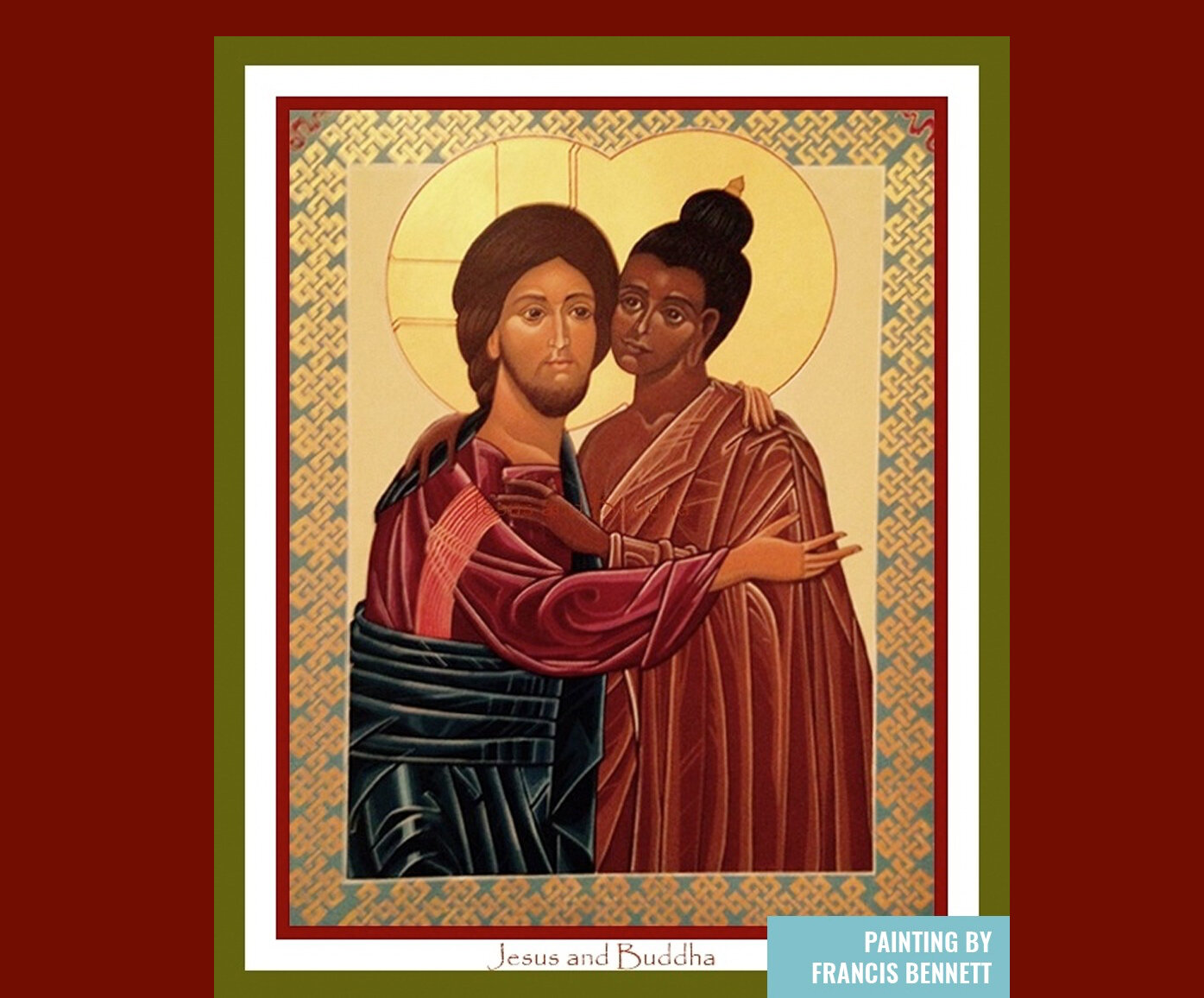
“Wouldn’t It Be Nice if Christians Became Taoists?" Hope for the Emerging Christian Church" By Bruce Epperly and Jay McDaniel
The emerging church in the West – the church of spiritual seekers who seek to share in the journey of Jesus but not impose it on others -- is already Taoist in tone. What remains is for participants in this new and emerging church to turn eastward, learning from Asian Christians and the cultural traditions they bring with them, and thus learning to gentle their enthusiasm with the humility of stardust. What remains is for them to realize that one of the best ways to “proclaim the gospel” is not to proclaim at all, but rather to travel a path of gentleness, which is its own proclamation, its own good news.
BE SUPPORTERS OF BRUCE EPPERLY AND JAY MCDANIEL’S WORK

7 Reasons Why Evangelicals Should Read Thomas Merton by Michael Wright
I first learned about Thomas Merton when I skipped chapel at my Christian high school. I started to meet weekly with a kindhearted Bible teacher who looked through my cynicism and saw a desire for a deeper spiritual life. I’m grateful for those conversations—especially the day he told me about a book written by Merton called No Man Is An Island. As I started reading it, I was excited to find a monastic writer with piercing insights into my own inner life and a Christian mystical tradition markedly different from the subculture around me. It was providential timing: I was slipping into depression that would last for years, and Merton quickly became a friend and guide through a spiritual wilderness. So today, in honor of his birthday and his lasting impact on the wayfarers and mystics among us, here are seven reasons why evangelicals should read Thomas Merton:
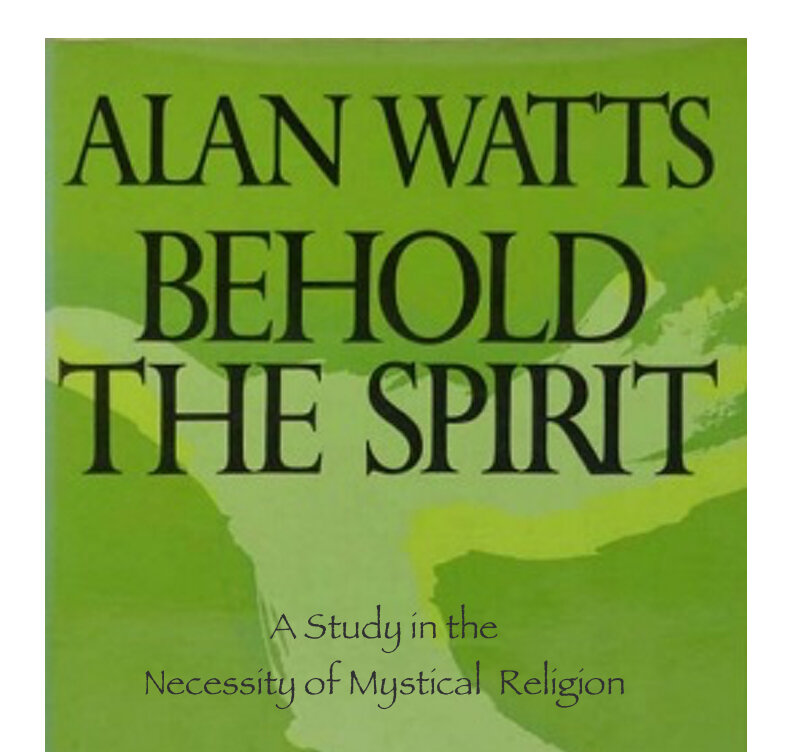
“Behold the Spirit” (New Preface) by Alan Watts
This book was written twenty-five years ago, during the experiment of trying to immerse myself in Christianity —to the extent of being a priest of the Anglican Communion, Episcopal Chaplain at Northwestern University, and an examining chaplain for candidates for holy orders in the Diocese of Chicago. Prior to this experiment, indeed since the age of fifteen, my outlook had been Buddhist rather than Christian even though I had been schooled in the heart of the Church of England and had learned a version of Christianity which was not that of this book. In adolescence I had rejected it, but as time went on the study of comparative religion and Christian mysticism suggested a way in which I might operate through the forms and in the terms of the official religion of Western culture. I did not want to be an eccentric outsider, and felt that Catholic Christianity might be taught and practiced as a form of that perennial philosophy which is the gold within the sectarian dross of every great religion.
CONTRIBUTE TO THE ALAN WATTS ORGANIZATION

“Rediscovering Fire” by Ursula King - Religion, Science and Mysticism in Teilhard de Chardin
PIERRE TEILHARD DE CHARDIN'S vision was one of consuming fire, kindled by the radiant powers of love. It was a mystical vision, deeply Christian in origin and orientation. Yet it broke through the boundaries of traditional orthodoxies -- whether those of science or religion -- and grew into a vision which is global in intent.
His deepest desire was to see the essence of things, to find their heart, and probe into the mystery of life, its origin and goal. In the rhythm of life and its evolution, at the center of the cosmos and the world, Teilhard believed, is a divine center, a living heart beating with the fiery energy of love and compassion. Now, the heart is really a fleshly reality But the image of this very flesh, this concentration of living, breathing matter, came to symbolize for Teilhard the very core of the spirit.
PLEASE SUPPORT MS. KING’S SCHOLARSHIP

“ENTERING INTO THE KINGDOM — excerpt from THE KINGDOM WITHIN” by John A. Sanford
We have already seen that the kingdom is within all of us. But paradoxically only a few among the multitude will find their way to the kingdom. The many will pass by and not notice its reality, and even some who have been expressly invited to enter will not accept God’s invitation. So Jesus declares
“For many are called, but few are chosen.” (Matt. 22:14)
Those who do enter the kingdom are those who have come to recognize the reality of the inner world and to respond to its demands upon them for consciousness. This must always be an individual act of recognition; it cannot be accomplished so long as we are identified with a group. Yet most of us find our sense of identity only in our membership in the Church, the nation, the political party, or the gang on the street corner…
BUY JOHN A. STANFORD’S BOOKS

"A Revolution of Authority" by David Steindl-Rast
The editorial staff at What Is Enlightenment? magazine ask: These days there is a wary climate regarding people who hold themselves out as spiritual authorities. There is a tendency to be very skeptical about the possibility that someone could be a genuine authority. Yet traditionally it’s been fairly common for people to seek out a spiritual teacher for guidance, and to commit themselves to that teacher. What are your thoughts on this?
Brother David replies: Some twenty years ago, there was a much greater openness to making anybody who came along and seemed to have some great credentials for teaching your guru. Nowadays many people have been burnt and they will look twice. That is skepticism, and it can easily become cynicism
BE A SUPPORTER OF BR. DAVID STEINDL-RAST, OSB and A NETWORK FOR GRACEFUL LIVING

"A Toxic Image of God" by Fr. Richard Rohr, OFM
Your image of God creates you. This is why it is so important that we see God as loving and benevolent and why good theology is still important.
One mistaken image of God that keeps us from receiving grace is the idea that God is a cruel tyrant. People who have been raised in an atmosphere of threats of punishment and promises of reward are programmed to operate with this cheap image of God. They need deep healing, because they are actually attached to a punitive notion of God. Many experienced this foundational frame for reality as children, and it is hard to let go. It gives a kind of sick coherence to their world.
BE A SUPPORTER OF FR. ROHR AND CAC

“Re-imagining God in the 21st Century” by Jeffery Small
Unlike the age of the Biblical writers, we live in a world ruled by science, technology and secular thought — a world that is interconnected in ways that a few decades ago was unimagined. Today we understand that our world is governed by physical laws from the subatomic realm to the cosmic, so where do we find room for God to act? Is God still relevant? How can we conceive of God today in a way that is honest to our intellects while satisfying to our hearts?
BE A SUPPORTER OF JEFFERY SMALL’S WORK

"False Hope and Beauty in an Anthropomorphic God" by Sam Alexander
We speak of a conscious god, one with feelings like sorrow, anger, and joy. We speak of a just god, one who demands moral behavior and forgives moral breaches, one who speaks and gets His way. But is that true? Is there really a god like that or do we simply want that to be true?
Is there for instance, a god who has established justice, one who balances the cosmic scales of justice? Let me quote scripture to answer that one. Qoheleth says, “In my own vaporous life I have seen everything; there are righteous people who perish in their righteousness, and there are wicked people who prolong their life in their evil doing” [Ecclesiastes 7:15].
BE A SUPPORTER OF SAM ALEXANDER’S MINISTRY

"Bishop John Shelby Spong On: The Resurrection"
The Christian Faith was born in the experience that we have come to call Easter. It was this Easter experience that invested Jesus with a sense of ultimacy. It caused his followers to regard his teaching as worthy of being preserved. It was the reason that Saint Paul could write, “if Christ has not been raised then your faith is in vain.” Clearly without Easter there would be no Christianity. That assertion hardly seems debatable. At this point I discover that I am at one with the most literal fundamentalists.
BE A SUPPORTER OF BISHOP SPONG’S WORK

“Richard Rohr and the Alternative Orthodoxy” - The RobCast - Rob Bell Episode 86 |
ALTERNATIVE ORTHODOXY
Methodology: Scripture as validated by experience, and experience as validated by tradition, are good scales for one’s spiritual worldview.
Foundation: If God is Trinity and Jesus is the face of God, then it is a benevolent universe. God is not someone to be afraid of, but is the Ground of Being and on our side.
Frame: There is only one Reality. Any distinction between natural and supernatural, sacred and profane is a bogus one.
Ecumenism: Everything belongs and no one needs to be scapegoated or excluded. Evil and illusion only need to be named and exposed truthfully, and they die in exposure to the light.
Transformation: The separate self is the problem, whereas most religion and most people make the “shadow self” the problem. This leads to denial, pretending, and projecting instead of real transformation into the Divine.
Process: The path of descent is the path of transformation. Darkness, failure, relapse, death, and woundedness are our primary teachers, rather than ideas or doctrines.
Goal: Reality is paradoxical and complementary. Non-dual thinking is the highest level of consciousness. Divine union, not private perfection, is the goal of all religion.
BE A SUPPORTER OF FR. ROHR AND MR. BELL’S WORK

"Saved From God? Alternatives to Penal Substitution Atonement Theory" - Matthew Distefano
In so many words, this is the Gospel according to Western Christianity. Over the details we may quibble, but we are often told that Jesus died in order to save sinners from the wrath of God. In other words, he was a substitutionary sacrifice—he died in our place—to appease the Father’s justice, honor, and wrath. The story of how we get to such a place where we need such a sacrifice basically goes like this:
BE A SUPPORTER OF MR. DISTEFANO’S WORK

"At-One-Ment, Not Atonement" by Fr. Richard Rohr
The common reading of the Bible is that Jesus “died for our sins”—either to pay a debt to the devil (common in the first millennium) or to pay a debt to God (proposed by Anselm of Canterbury, 1033-1109). Franciscan philosopher and theologian John Duns Scotus (1266-1308) agreed with neither of these understandings.
Duns Scotus was not guided by the Temple language of debt, atonement, or blood sacrifice (understandably used by the Gospel writers and by Paul). He was inspired by the cosmic hymns in the first chapters of Colossians and Ephesians and the Prologue to John’s Gospel (1:1-18) and gave a theological and philosophical base to St. Francis’ deep intuitions of God’s love. While the Church has not rejected the Franciscan position, it has been a minority view.
BE A SUPPORTER OF C.A.C AND FR. ROHR’S WORK

“Atonement” by Richard Rohr
Two generations ago, the landmark theologian in our tradition (Nazarene), H. Orton Wiley, wrote that the penal substitution theory of the atonement was inconsistent with Wesleyan (Nazarene) theological commitments, and therefore could not be our atonement theory. Franciscan priest and thinker Richard Rohr is also concerned that penal substitution has led western Christianity down very negative pathways. He writes,
“For the sake of simplicity and brevity here, let me say that the common Christian reading of the Bible is that Jesus “died for our sins”— either to pay a debt to the devil (common in the first millennium) or to pay a debt to God the Father [proposed by Anselm of Canterbury [1033– 1109] and has often been called “the most unfortunately successful piece of theology ever written”.
BE A SUPPORTER OF THE CENTER FOR ACTION AND CONTEMPLATION

"The Surrender to Transformation" by Rev. Emily Wright-Magoo
Come into this space, where today we consider the surprise, the surrender, the gift… that is part of the process of transformation.
Let mystery have its place in you; do not be always turning up your whole soil with the plowshare of self-examination, but leave a little fallow corner in your heart ready for any seed the winds may bring, and reserve a nook of shadow for the passing bird; keep a place in your heart for the unexpected guests, an altar for an unknown God. – Swiss philosopher and poet Henri-Frederic Ariel
STORY
Once upon a time, a stream, from its course in far-off mountains, passing through every kind of countryside, at last reached the sands of the desert.
Just as it had crossed every other barrier, the stream tried to flow across the sand, yet as fast as it ran into the sand, its waters disappeared.
BE A SUPPORTER OF EMILY WRIGHT-MAGOO’S WORK
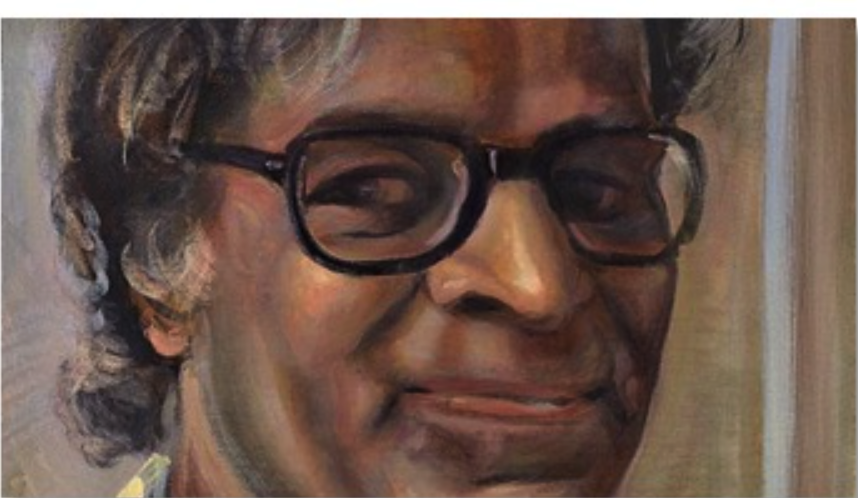
"Anthony de Mello" by Joan Chittister
Anthony DeMello, the Jesuit spiritual teacher and psychotherapist, died suddenly of a heart attack on June 2nd in 1987 at the age of 56. In memory of his life, printed below is a piece Sister Joan wrote about him for an article entitled "The Spiritual Art of Three Modern Masters" that appeared in the U.S.Catholic magazine in June, 1994. The other two masters were Dorothy Day and Thomas Merton.
I never met the man and I never made one of his retreats. I never read anything he wrote and I never studied his curriculum vitae. I've never talked to anyone who talked to him and I've never heard one of his tapes. But few people have had a greater impact on my life. DeMello was not a designer of spiritual systems. He was not a lawgiver. He was not a cheerleader for a collection of esoteric spiritual exercises. No, Anthony DeMello was a teller of ancient stories whose stories rearranged the human landscape. It is in the stories that he told that I met Anthony DeMello and knew at once that he was unforgettable.
BE A SUPPORTER OF SISTER CHITTISTER’S WORK
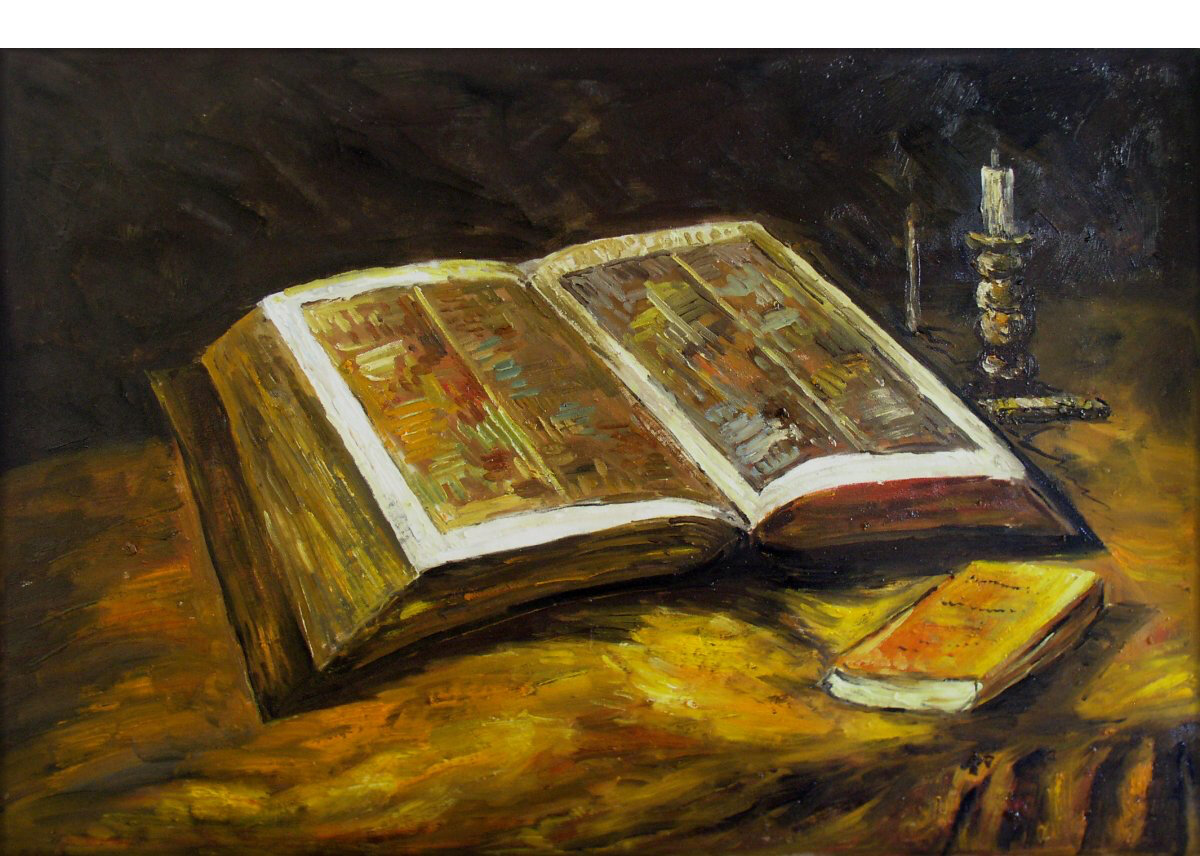
"Myth and the Bible" (Parts 1, 2) by Jeffery Small
When you hear the word “myth” associated with the Bible, what is the first thought that comes to your mind? Do you define the word “myth” to mean that the stories described are not factually true?
My reading of the Bible has undergone an evolution over the years. As a child, I was taught the various stories as if they were actual historical events. As my understanding of science and the world began to broaden, I saw that a literal reading of many of these stories was impossible. I came to view the Bible as myth, by which I meant non-historical stories that contained a moral message. Today, my understanding of the Bible as myth has taken another step. Although I still do not believe that many of the stories are historically or factually accurate (although they may be anchored in historical events), I view “myth” in a broader and more meaningful sense. Mythology is a form of literature that expresses fundamental truths in a way that ordinary discourse is inadequate to describe. Mythology adds a richness of detail and a concreteness to metaphorical language. Now when I refer to the stories in the Bible as mythology, I do not intend to do so pejoratively. Reading these stories as myths gives me the freedom to understand their underlying meaning in a way I never could before.
BE A SUPPORTER OF MR. SMALL’S WORK
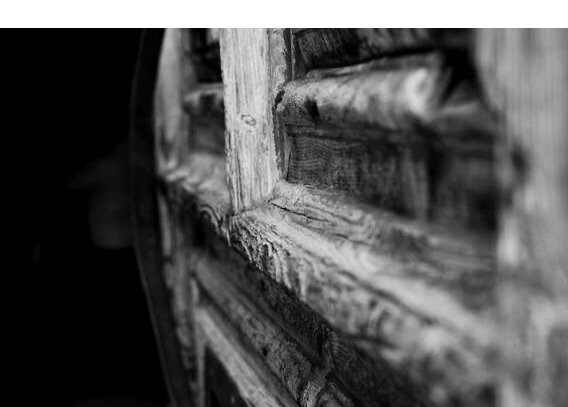
"Jesus and the Tao" by Francis Ritchie
If you have an aversion to Eastern philosophy (even though Christianity is, by origin, an Eastern religion), bear with me, I think you’ll find this interesting anyway. I’ve been trying to find a cohesive way of expressing what I believe the person of Jesus calls us towards that steps into something much deeper than just a conversion to a codified religion and its accompanying world-view (Christianity). The Tao (Dao) offers something into this space. With that in mind, here I want to explore Jesus and the Tao.
BE A SUPPORTER OF REV ’S RITCHIE’S WORK
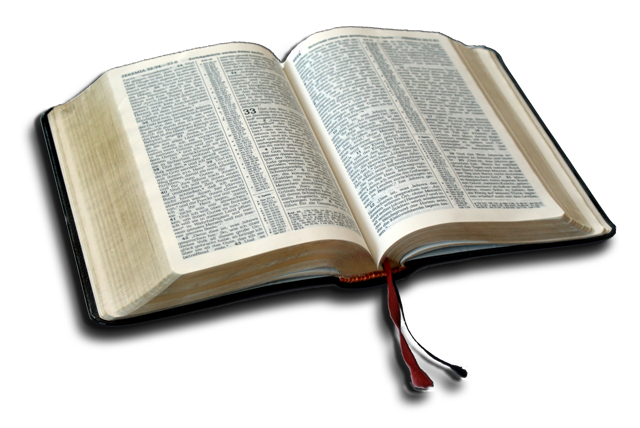
"The Evolution of Human Consciousness: and why we should be more open about The Bible" by Devon Bailey
It’s impossible to look at the human race and not see an evolution of awareness happening. Each generation brings about new questions about who we are and who we are supposed to be. Often a former way of thinking is challenged by an oppressed group and allies who have seen a different way to be in the world. In America, this is usually marked by marches and protests. Take the Civil Rights Movements of the sixties, the Woman Suffrage movements, and today’s movements for LGBTQ persons.
It also happens with the advent of a new technology. We once thought the earth was flat. We once thought the sky was a glassy firmament with windows that let the sky waters in. But now we have photographs of our round home and we’ve sent men into the sky so that they could walk on the rock that lights up our nights.
BE A SUPPORTER OF DEVON’S WORK

